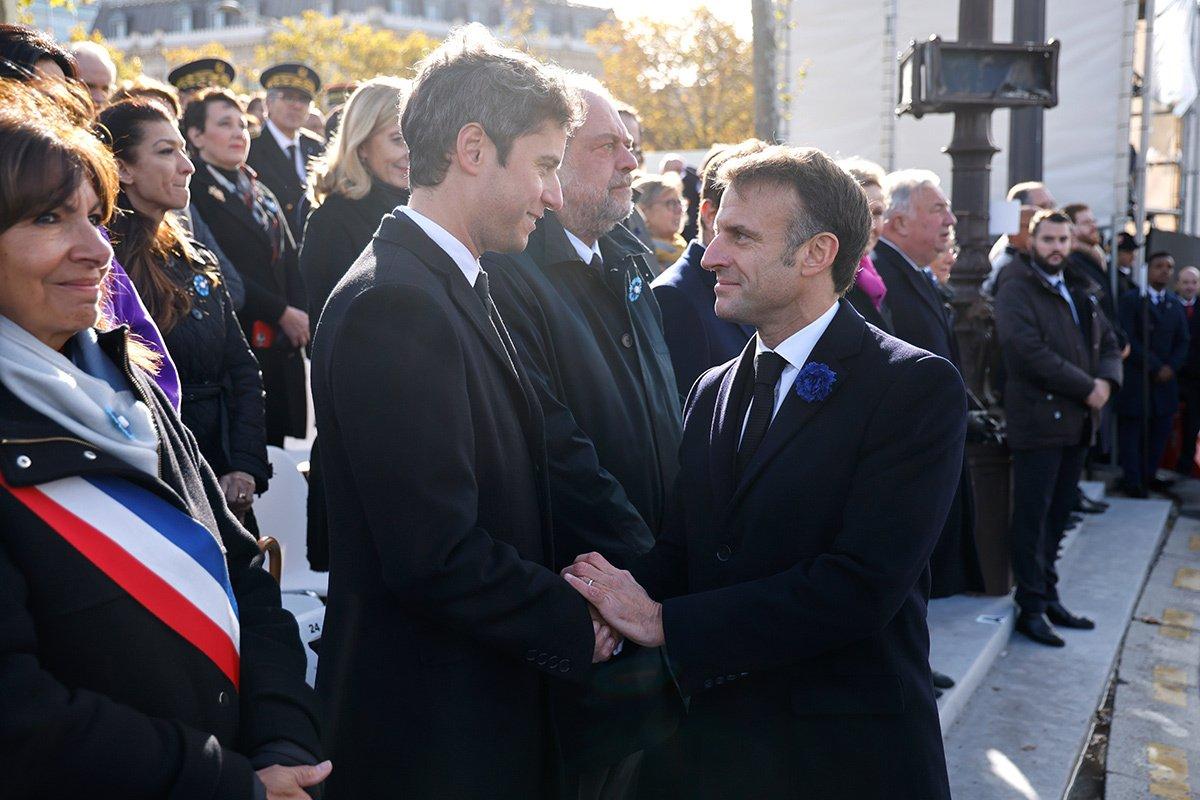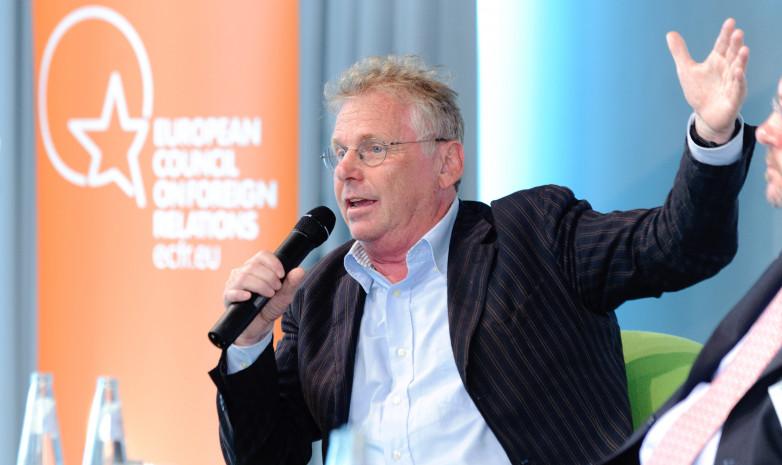Evolution of values: From drug decriminalization to challenging traditions Western liberalism gone wild
The Paris Olympics emerged as a battleground for ideological messaging. Throughout the opening ceremonies and the competitions, organizers seized every opportunity to convey political and social messages. They challenged fundamental norms of civilized coexistence, questioning long-held values such as the rejection of discrimination and collective repression against individuals from certain countries. They even ventured into areas traditionally tied to objective biological differences, such as gender, family roles, and marriage.
This might seem like an exaggeration were it not for two key factors. Firstly, there is a notable consensus among many Western elites regarding this ideology, despite their questionable support from the general public, as reflected in election results that lack serious alternatives. Secondly, this ideology has already demonstrated its detrimental effects within the West, contributing to societies that are increasingly struggling with labour productivity, creativity, and development. This has led many countries to resist adopting Western models, concepts, and values that are being imposed upon them.

Sacrificing science for liberalism’s triumph?
Emmanuel Macron’s assaults on humanism and traditional values were hardly surprising. The “eternally youthful” Macron and his team are eager to position themselves as leaders of the global liberal establishment. Underneath their facade of championing equality and combating corruption, the French government notably features individuals in key positions who emphasize a specific sexual orientation, with some openly engaged in intimate partnerships.
For the Western liberal elite, the focus is less on tolerance and more on the overt display of such orientations. This spectacle often overshadows concerns about competence. In France, the situation is peculiar. The current 34-year-old Prime Minister Gabriel Attal’s resume includes only five years as a health minister’s assistant, a few months in Parliament, and a brief stint as Minister of Education at 29. Despite his lack of extensive experience, such figures highlight their affiliation with the ideologized LGBT activist community and the perceived “homophobia” in society as barriers to their advancement.

France exemplifies a broader trend seen across various Western countries. This shift is not merely about promoting tolerance and combating discrimination; it reflects a systematic imposition of transhumanist values that challenge foundational concepts guiding human societies. The rejection of family values and the traditional understanding of gender roles — based on biological and physiological realities — illustrates this ideological shift.
Human societies have historically evolved their views on morality and acceptability, including gender issues. However, certain universal boundaries, such as the male-female division, have been grounded in biology and physiology. Denying these biological truths is akin to rejecting fundamental scientific laws, such as gravity or the periodic table; the consequences of such denial can be severe.
Historically, societies have recognized and integrated individuals who do not fit the binary gender model due to biological variations, addressing these deviations with respect and understanding. Even in Shiite jurisprudence, norms exist for dealing with those who undergo gender reassignment.
In recent decades, a troubling trend in Western intellectual thought has been the undue expansion of constructivism — the idea that all concepts are socially constructed — to natural and exact sciences. This notion has gained traction, often fueled by activist groups, despite its lack of grounding in fundamental scientific knowledge. Gender studies, feminism, and human rights movements, influenced by these radical ideas, frequently fall prey to this flawed constructivist approach.

Efforts to counter the misuse of constructivism in science include notable examples like the Sokal affair. In 1996, Alan Sokal, a distinguished Anglo-American physicist, submitted a deliberately absurd article to Social Text, a prominent cultural studies journal. His goal was to test whether the journal, known for its ideological leanings and influential editorial board members like Fredric Jameson and Andrew Ross, would publish a paper filled with nonsense if it was well-written and aligned with their biases. The piece falsely claimed that quantum gravity was a socially and linguistically constructed phenomenon, dismissing an entire field of physics as a mere intellectual fabrication.
Despite the absurdity of the claim, the article was published. Sokal later revealed the exercise as a critique of the arbitrary application of constructivism to scientifically rigorous subjects. This incident highlighted the dangerous trend of applying constructivist thinking to areas that rely on objective, measurable phenomena, such as human gender and behaviour.
Recently, renowned biologist Richard Dawkins added to this debate. On his X (former Twitter) account, Dawkins stated that participants in Olympic boxing with XY chromosomes are biologically male, regardless of their claims to the contrary. He criticized allowing such individuals to compete against women, calling the situation "ridiculous." Dawkins faced backlash for these comments, with Facebook deleting his account. While it was later reinstated, the company's explanation seems to be a clumsy attempt to undo a failed repressive measure. This move followed Dawkins' previous persecution for his views: in 2021, his scepticism about transgender identity led to him being stripped of his Humanist of the Year title.

Dark origins of cultural "Frankensteins"
In examining the disturbing cultural constructs of Western liberal modernity, it's crucial to recognize that these concepts often have origins beyond mere societal evolution. They can be traced back to influential figures and covert operations from the Cold War era.
One notable example is Gloria Steinem, a prominent leader of second-wave feminism who, unbeknownst to many, had ties to the CIA. Rather than solely championing the genuine rights of women, Steinem played a role in popularizing various liberal concepts, such as intersectionality and the advocacy for unrestricted abortion rights. Although she was not directly representing the CIA at the time, her work was closely linked to CIA-financed NGOs like the "Independent Research Service," which operated covertly on behalf of the agency. Steinem has publicly acknowledged and even taken pride in her work with the CIA. The agency's strategy was to use non-Communist radical activism to counter Soviet influence, even though the Soviet Union had long since ceased being a significant ideological force.
Steinem is just one example of how American and European resources were used to promote specific cultural ideologies. The "Congress for Cultural Freedom," active from 1950 to 1979, was another major player. This organization supported numerous cultural projects and figures not based on their talent or public appeal but on their alignment with the CIA's anti-Communist agenda. While the Cold War ended, the influence of these cultural initiatives persists, contributing to the complex and sometimes troubling state of contemporary Western societies and beyond.

The case of Gloria Steinem serves as a telling example of how the pursuit of ideological agendas can shape cultural narratives. Despite being exposed as a CIA asset, Steinem remained a celebrated figure in the feminist movement, and her ideas became foundational in feminist discourse. Her story underscores how what was presented as a genuine struggle for women's rights often masked a deliberate distortion of universal norms and values, orchestrated under the guise of CIA operations.
The impact of Steinem's work is evident in contemporary issues like gender discourse and the promotion of "child-free" lifestyles, which subtly undermine traditional family structures. In the United States, for instance, there is a lack of adequate maternity leave, and in Germany, one of the wealthiest Western nations, women were stripped of the right to parental leave in 1991 under the guise of promoting "equal rights." They were deprived of this right in 1991, following the end of the competition with socialist countries. Ironically, Western countries themselves have become victims of these cultural shifts. This phenomenon is not unprecedented; a similar pattern occurred with Salafi jihadism, which Western intelligence services initially supported to counter the USSR but ultimately turned against the West.
American biologist Paul R. Gross and mathematician Norman Levitt highlighted this troubling trend in their book, noting that leading academic journals often publish flawed research as long as it aligns with "correct leftist reasoning" and is authored or endorsed by prominent leftist figures. This phenomenon reveals a deeper issue where ideological biases overshadow rigorous academic standards.

We’ll delve further into this issue. Many of the leftist intellectuals who shaped modern Western liberal ideology were once non-communist leftist radicals, often with Trotskyist affiliations, who were engaged by Western intelligence services in a purported effort to combat communism. Gloria Steinem serves as a notable example, but many liberal intellectuals and politicians share similar backgrounds. Not all of them directly collaborated with intelligence agencies like the CIA, but the leftist radical movements in Western Europe and the USA were deeply intertwined with such connections. Western authorities generally did not interfere with these activists unless they resorted to violence, which was rare. Most operated within acceptable bounds for Western security services.
One example is Daniel Cohn-Bendit, a key figure in founding the European Green Movement and a prominent liberal thinker. Cohn-Bendit infamously twisted Marxism into a pedophilic context, authoring explicit articles and a book about his sexual experiments with children in an "anti-authoritarian kindergarten" where he worked. Despite this, he received no repercussions, as he also produced works deemed useful in the ideological struggle against communism, such as his book "Outdated Communism and the Leftist Alternative." The German and American intelligence services supported his activities, inadvertently fostering a new liberal ideology that contradicted the very values of their societies.
In essence, the current chaos is a creature that has broken free from the very lab where it was originally concocted. Unfortunately, no lessons seem to have been learned. Western intelligence agencies and their affiliated foundations continue their perilous experiments, this time aimed at countering China, Russia, Iran, North Korea, and other adversaries. They back destructive forces and engage in cultural experiments that attack not just specific political opponents but the foundational human values and norms of humanism. This is evident in the way new Western values are being forged — through convoluted alliances with Salafi jihadists, LGBT activists, anarcho-nationalists, and various religious sects.

The path of degradation
The fusion of destructive experiments with other harmful trends in the West has given rise to new transhumanist values that reject the entirety of human history. However, madness, by its very nature, cannot foster growth or productivity; it is inherently sterile. Therefore, it is no surprise that the spread of these values in the West has led to tangible consequences.
These transhumanist values align with the current socio-economic models and political regimes of many Western countries, which undermine sustainable development and the self-reproduction of their indigenous populations. The most glaring examples of this are the demographic and migration crises. Propaganda promoting a "child-free" lifestyle, monetized relationships, and rampant consumerism has produced a society increasingly incapable of productive work and nurturing future generations. Consequently, there is a growing need to import migrants with varying levels of qualifications to fill the void left by this deteriorating social fabric.

The socio-cultural model prevalent in the West is contributing to intellectual barrenness, which is evident in the current state of science and high technology. Western advancements are partially sustained by drawing on trained specialists from other countries. For instance, the IT sector benefits significantly from migrants who were educated by the Soviet mathematics school and its successors. Not long ago, I was struck by the fact that a leading artificial intelligence expert at a European company, educated primarily in Iran, was part of a team composed of graduates from Chinese, Iranian, Pakistani, Indian, and Russian universities.
Despite this influx of talent, the West is struggling in key areas. The US, for example, is stagnating in microelectronics and related fields — President Biden even attempted to attract relevant firms from South Korea, which holds values not aligned with Western liberalism. Space exploration has seen little progress over the past fifty years, highlighted by recent issues with astronaut returns from Earth orbit, news that coincided with the Olympics. In contrast, China has made significant strides, including a mission to the far side of the Moon and the launch of a new satellite constellation for Earth observation.
The pursuit of a dead-end ideology with values harmful to humanity's survival has led to a chronic public security crisis in many Western nations that have embraced liberal ideals. By abandoning traditional norms that once stabilized society and promoting mass migration to lower wages and facilitate a "brain drain," Western governments are struggling to manage public safety threats despite advanced technological capabilities. Their attempts to maintain a façade of control often result in minimizing the severity of socially dangerous activities.
For instance, the liberalization of drug laws has become a notable trend. In Europe, marijuana regulation is increasingly lax, and Berlin Greens are now pushing for the decriminalization of hard drugs such as cocaine and ecstasy. This shift follows the example of Finland's former Prime Minister Sanna Marin, who, during her tenure, faced no repercussions for attending cocaine parties — a spectacle that left the nation astonished. The leniency extends beyond drug laws to a broader decline in criminal accountability and diminished police presence. In Germany, patrol cars have virtually vanished from the streets over the past decade, reflecting the broader erosion of law enforcement in response to rising social issues.

Despite numerous failures, the West persistently champions its pseudo-liberal ideology as the future, positioning it as a beacon of progress while dismissing its critics as lesser, even barbaric. This narrative mirrors a modern version of "white/Christian/European supremacy," lacking any genuine progressive merit or claim to universal consensus. The socio-cultural ideology promoted by the West is largely confined to its own universities, media, entertainment industry, and other institutions closely tied to state or elite interests.
The driving force behind this global cultural imposition is the West’s ambition for political and economic dominance. By undermining national identities and erasing local cultures, the West aims to create a more homogenized world that is easier to control. Franz Fanon, a notable anti-colonial intellectual, once observed that the fight for national independence is intrinsically linked to the struggle for cultural self-determination. In this context, imperial powers seek to obliterate local cultures to more effectively exert control over territories and populations.

The resistance to the modern West's pseudo-liberal values is not confined to a few isolated nations but is gaining traction among an increasing number of states and the majority of humanity. Azerbaijan’s commitment to conservative values regarding family and LGBT issues reflects a broader trend, aligning with the perspectives of many major non-Western countries and several in the West, such as Hungary and the former leadership of Poland. Notably, there are significant opposition movements across Western countries as well.
Given that traditional values have proven resilient across diverse cultures and regions, it is striking that this resistance has not yet brought an end to the dominance of pseudo-liberal ideologies. Most countries, despite their differences, adhere to time-tested values that stand in contrast to the contemporary liberal narrative.








